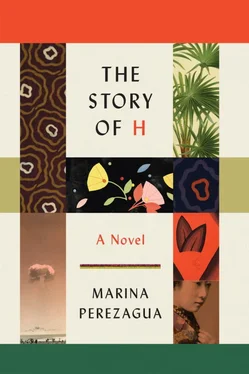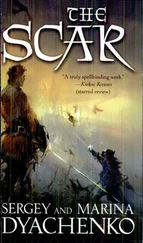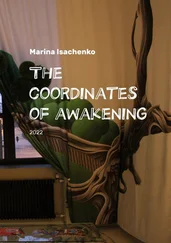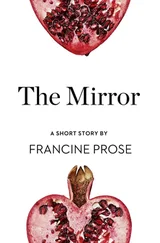Jungle Versus Man
I realize now as I’m writing this that you may consider certain particulars unnecessary for delivering your verdict. But believe me, your judgment is not my only concern. I wish to write certain things down without taking you into consideration, perhaps to re-experience the events, or because way down at the bottom of my heart, I would like to be understood by someone who is far removed from revenge and close to deep human emotion. These personal details serve as my defense before the powers that be, a valid defense regardless of the punishment. There’s also absolution. The absolution you aren’t going to grant me, though I have faith that others may find it in themselves, if they ever read what I have written.
I remember the first time I slept with Jim. We weren’t acquainted enough to spend an entire night in each other’s arms without feeling awkward, though he clung to me, or I clung to him, with a kind of naturalness that comes only with the passage of time. I’d never felt that way with a near stranger. It was as though he required my full presence as he slept, my full attention, yet at the same time he was fully aware that this kind of intimacy comes only by way of affection, and though he wouldn’t let me pull away from him, he held me so gingerly that I slept with an uncanny sense of autonomy. I came to associate his holding me that way with something he explained later on. One of the ways insanity would present itself among the prisoners on the Oryoku Maru, he said, had to do with how a prisoner would suddenly seize another and grope his face, his body, like a blind person from out of his darkness frantically trying to scrutinize the features of a loved one. It’s something I also read in George Weller’s ship chronicles. There were so many prisoners jammed into the compartments that most of them were forced to sit with someone else nestled between their legs and that person in front of them also had someone nestled between their legs, and so on in a herringbone pattern, and the excessive clutching and groping by the crazy ones resulted in the death of more than one of them. Jim never told me whether he had needed that type of contact or had avoided it however he could, but what matters is that when I learned about it, I reckoned that this particular way of clinging to me was his manner of holding on to life itself, to whatever still breathes in the blackness of night.
Most of the experiences Jim told me about took place after the war. He spoke about them distantly; not that the events hadn’t affected him, but his tone of voice, his eyes, denoted the type of distance born from years of effort. The few things he shared with me about his experiences as a prisoner of the Japanese were conveyed from inside not only of his own suffering but of the suffering of everything he named. When he described a companion scratching his flea-ridden scalp, the story had implications far beyond the idea of a companion who wouldn’t let him sleep; it included all that this single flea, and not another one, suffered during the onslaught of the soldier’s fingernails in its struggle to survive. In a single sentence he declared the destruction of the world order, the vibrating strings of a violin—sheep guts to cat guts—conveying wave after wave of massacre, from the hand that wields the bow to the eardrum that receives the sound and repeats the chain of sorrow like a tolling bell.
The only points of reference I had for concentration camps were the Nazi camps. But I heard Jim say several times that he found the situation with the Japanese concentration camps more perverse, partly because of the lack of awareness about what had happened in them, since most people have paid exclusive attention to the pain of the Jewish people, relegating the Japanese victims to the worst agony peace can inflict: obliviousness. This obliviousness wasn’t perpetrated by the enemy, but by the Allies themselves. I remember thinking about this so many years later when I read a plaque that had been placed above one of the ovens in Ebensee, a subcamp of Mauthausen, in Austria. There were a few verses written in German by the Austrian poet Peter Rosegger, which I jotted down in my notebook. Rosegger professed himself a friend of heat and light, so he asked to be incinerated and freed of the worm that in the earth penetrates the body:
May no slimy worm
Drag itself across my body someday!
May the purest part of me be consumed
Since my love for heat and light was constant
Burn me, and don’t bury me.
This is something the Austrian poet wrote from his love of life, his love of warmth and of light, being used as an adornment for horror. That plaque must have been read by countless eyes as the cadavers were being cast into the ovens, and regardless of who read it—Germans, Jews, homosexuals, or whoever else—the context allows only a single interpretation: the first-person narrator of the verse is begging for cremation. So ironically the last thing left to be taken from the prisoners about to be incinerated was removed: not their voices in life but their voices in death, foisting upon them the desire to be cremated beside the anonymous multitude. Placing these verses above the horror of the ovens was an act of perversion, as if trying to make it seem as though not only did the Jews accept their death, unafraid, but that they were asking for it, even offered justification for it. But as fate would have it, the unsought precedence of this despairing anonymous multitude unwittingly overshadowed another disgrace: the parallel atrocities committed during the Asian holocaust.
ON AUGUST 31, 1946, a little over a year after the first atomic bomb was dropped on my city, The New Yorker published a piece by John Hersey in which he presented the stories of six survivors about what the bomb had done to the city and to the flesh of its citizens. I was too young at that point and hardly knew English yet, so it wasn’t until several years later—maybe ten, give or take a few—that I could actually read the text. When I finally did read it, I became obsessed with victims’ testimonies, whether anonymous accounts or the ones recorded in documentaries. That’s how I first realized that the recurring image I frequently went back to, of unrecognizable lumps of flesh forced to say their name in order to be identified, wasn’t something I had made up on my own. The sharpest, most powerful images, those that I thought were strictly my own, in fact appeared again and again in other people’s testimonies. I tried to explain it in the most logical terms possible. I thought perhaps the survivors were led to share the most effective expressions precisely because of how indescribable it all was, so in this way they forged a new syntax for horror: a brand-new language that was—unlike the ones passed down over the generations from parents to children—learned in one fell swoop and passed instead from one eyewitness to another. In this language, then, “a lump whose head is swollen to three times its size” can be expressed only as “a lump whose head is swollen to three times its size.” There are no equivalent expressions. It’s a language without synonyms.
I was able to glean information from the material published in North American reports about what happened on the plane that dropped the bomb while I was waiting at my desk for the teacher, and in the same way I now hoped to use the other testimonies to help fill in that empty space before I opened my eyes in the hospital. I needed to know what had been going on while I was unconscious. By gathering testimony of the fact that life had continued to move forward, I might recover the days I had spent unconscious—which is to say, dead. All the testimonies seemed to be speaking for me. Once I heard a woman describe how the wounded would wander among the dead asking their forgiveness. That’s how I was brought up, feeling ashamed for having survived. The printing presses and newspapers removed the ideograms for atomic bomb and radioactivity, and the government avoided the use of the word survivor, it said, as a show of respect for the more than two hundred thousand fatalities. In Hersey’s text I read that hibakusha means “explosion-affected persons.” That’s exactly what it meant, a term that skirted not only the pain but also the miracle of having survived. A three-letter word could have made all the difference: “persons affected by the explosion,” not “persons affected by an explosion,” as if it were any old garden-variety bang, like the tempura batter that splatters when the oil’s too hot, or a birthday-party firecracker that explodes in a careless hand. That bomb was no accident. Hiroshima was THE explosion. In my head I conjured up some words that included the definite article the, which could better define what others call hibakusha. I decided that if forced to choose a name for us all, I would prefer “we who carry the bomb inside,” because the morning that a B-29 bomber dropped Little Boy over Hiroshima was only the beginning of the detonation. Ninety percent of the wounds the survivors suffered would come in doses of radiation, minute by minute, month by month, year by year, impregnating us with this evil that could be aborted only if we obliviate ourselves with it. I imagined a backward big bang, where every hour on the hour another little piece of the universe shrunk (shrinks?) into my body, so that on any given day, who knows when, it will finally rupture once and for all.
Читать дальше












